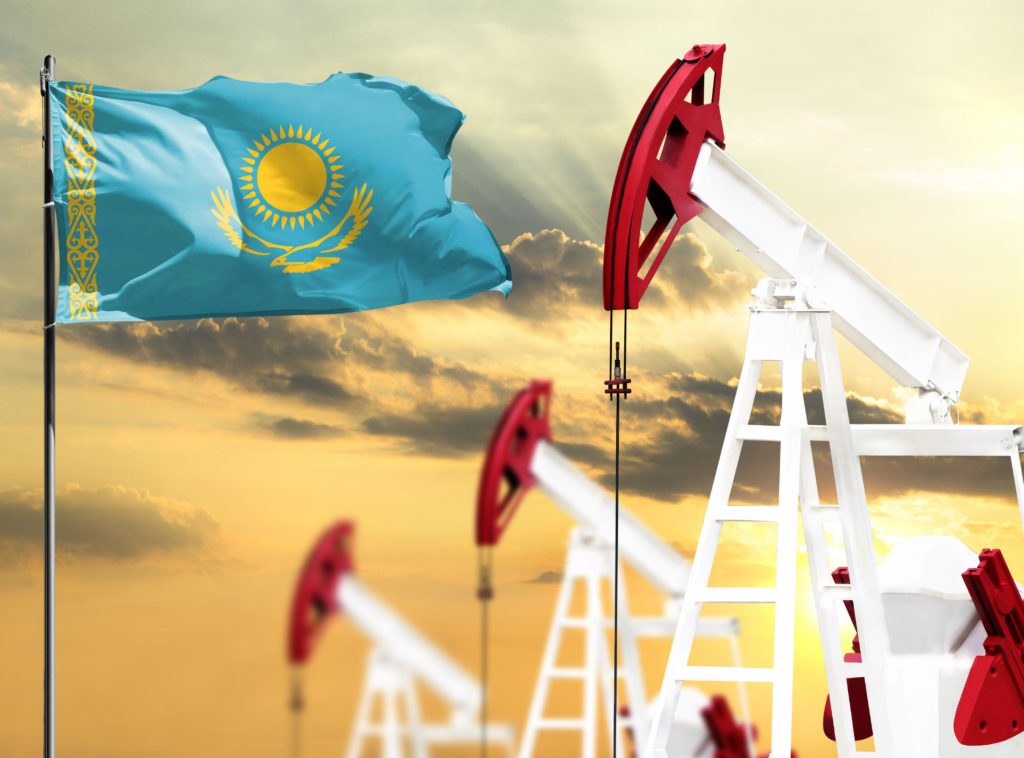NUR-SULTAN
Kazakhstan considers new investment mechanisms for energy projects in a move to give a new impetus for the resource-rich country’s priority sector and ensure sustainable economic growth.
President Kassym-Jomart Tokayev instructed the government to introduce a package of fiscal preferences to ensure the adoption of legislative norms by the end of this year. The norms will be related to the development of new investment mechanisms, in particular, an improved model contract.
This will provide legal protection and stability of investments with the provision of investment preferences, the president said and added that the initiative would be a “flexible and prompt response to the requests and problems of investors is of strategic importance.”
Kazakhstan produced 49.8 million tonnes of oil and gas condensate in the first half of 2021, in compliance with the country’s obligations under the OPEC+ deal.
As the COVID-19 pandemic disrupted production as well as demand for oil, OPEC+, a group of the Organisation of the Petroleum Exporting Countries (OPEC) and allied producers of which ex-Soviet Russia, Azerbaijan and Kazakhstan are members, cut output by a little more than 7 million barrels per day (bpd) to support prices and reduce oversupply. Earlier this year, members of the group agreed to ease cuts gradually by 350,000 bpd in May, another 350,000 bpd in June and around 450,000 bpd in July.
The cartel has now decided to increase production by a cumulative 400,000 bpd every month starting in August until it reaches the same production levels seen at the end of 2019. The ministers also agreed to extend their original agreement until the end of 2022 from an initially agreed date of April.
Kazakhstan will increase oil production to 1.491 million bpd from August, adding 16,000 barrels every month.
Oil production in Kazakhstan in 2020 reached 85.7 million tonnes. In 2021, the Central Asian country plans to produce 86 million tonnes of crude.
Tokayev said that the implementation of projects to expand the Tengiz, Kashagan and Karachaganak fields were priority tasks for the government and industry participants.
The president said that it was necessary to implement the third stage of work at Kashagan field to increase oil production to 1.1 million barrels per day.
He has also expressed concern about the implementation of the Tengiz Future Expansion Project, the construction work of which is almost 20 percent behind schedule and instructed the government, together with the project operator, to take appropriate measures to prevent the deadline for its completion.
The Tengiz field is operated by the Tengizchevroil, a consortium led by U.S. oil group Chevron. It also includes the U.S. Exxon Mobil, Russia’s LUKOIL and Kazakhstan’s state energy firm KazMunayGaz.
The Kashagan field is operated by an international consortium led by the North Caspian Operating Company. Other partners include Eni, Exxon Mobil, CNPC, Royal Dutch Shell, Total, Inpex and KazMunayGaz.
The Karachaganak gas condensate field in northwest Kazakhstan is jointly operated by Eni and Shell. Other shareholders in the project are KazMunayGaz, Chevron and LUKOIL.
Tokayev said that other important tasks were the creation of gas processing facilities at the oil and gas fields and the deep processing of hydrocarbons.
“The use of gas for gas chemical projects will reduce the raw material orientation of the industry,” the president told the meeting with government officials and heads of oil and gas companies including Eni S.p.A, Royal Dutch Shell, INPEX Corporation, Chevron, Exxon Mobil, CNPC, Total E&P.

